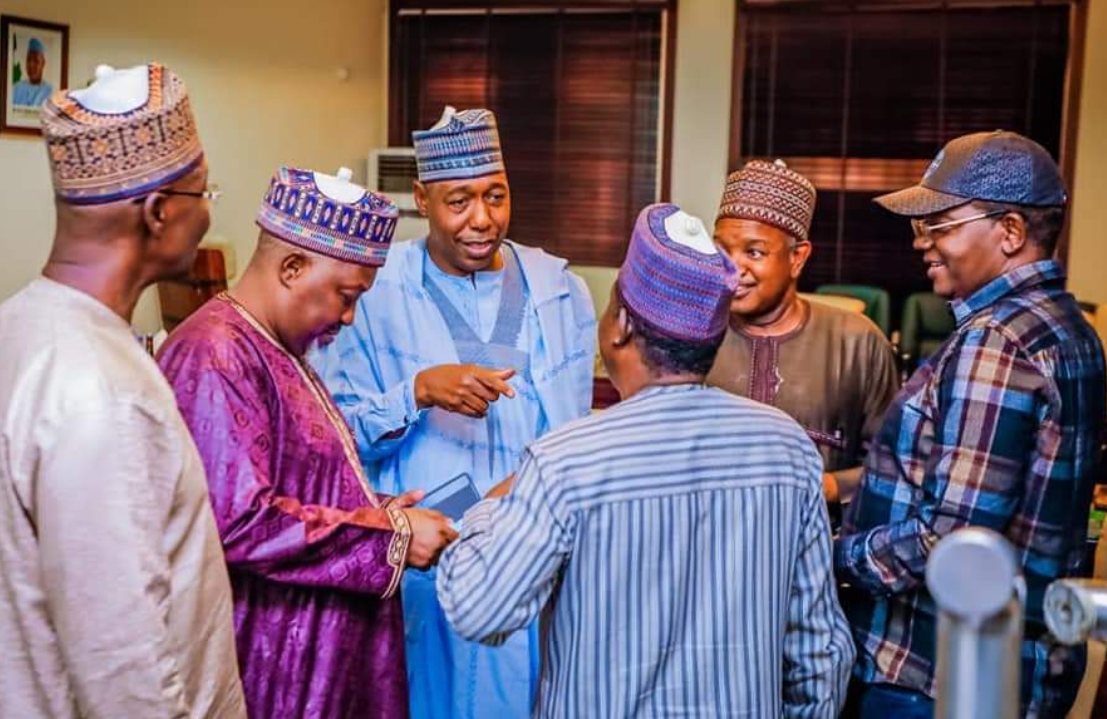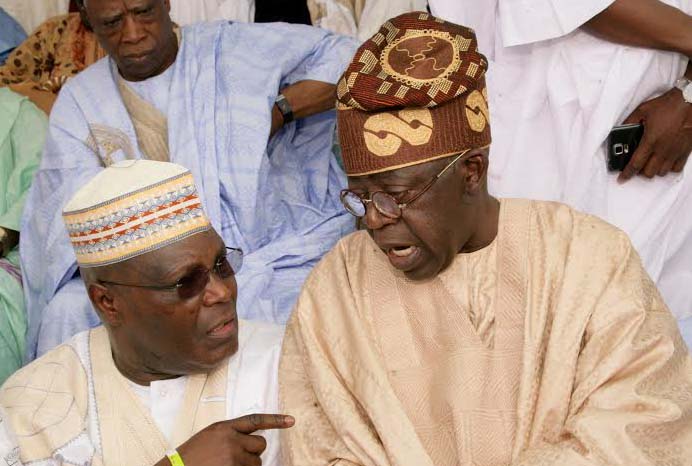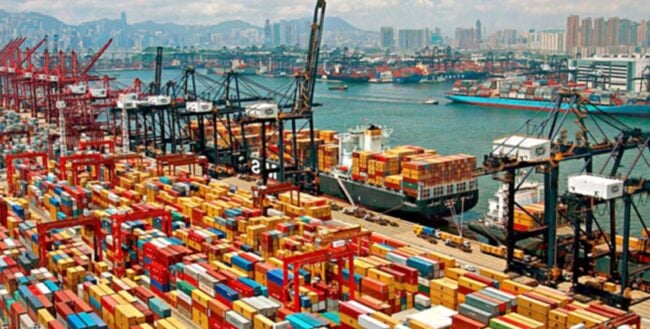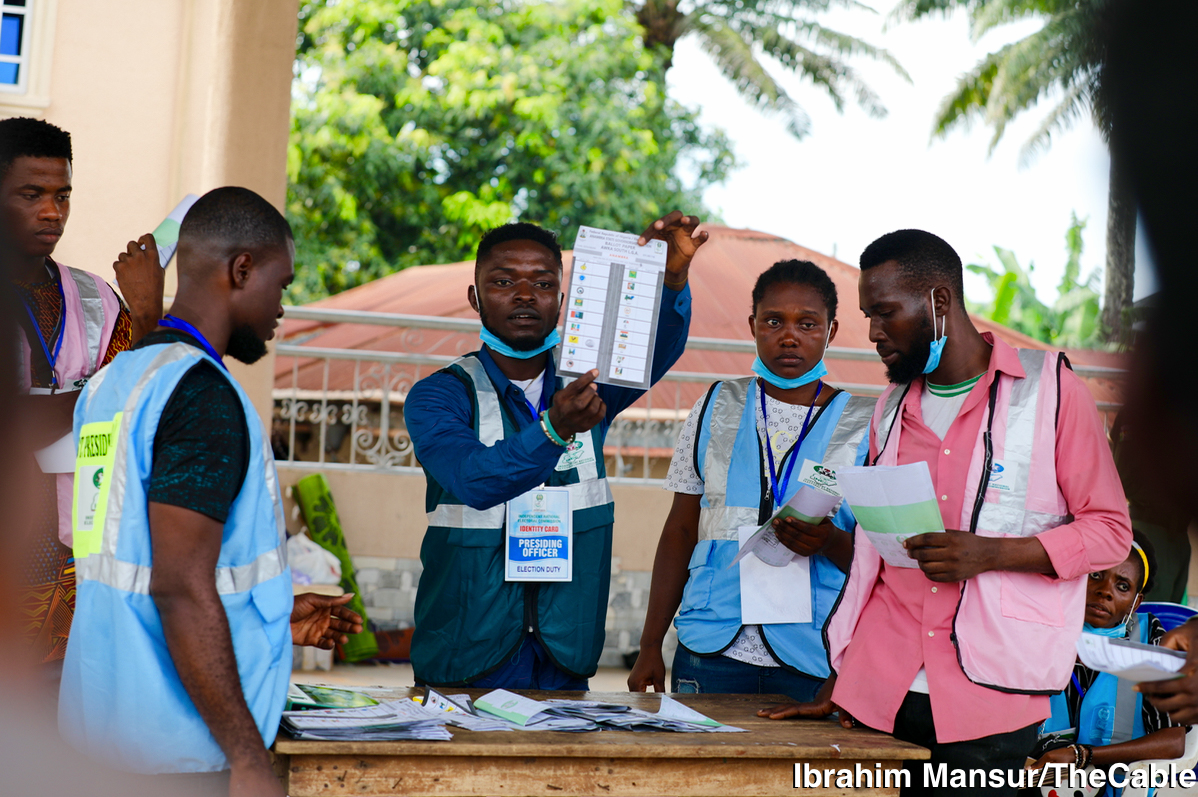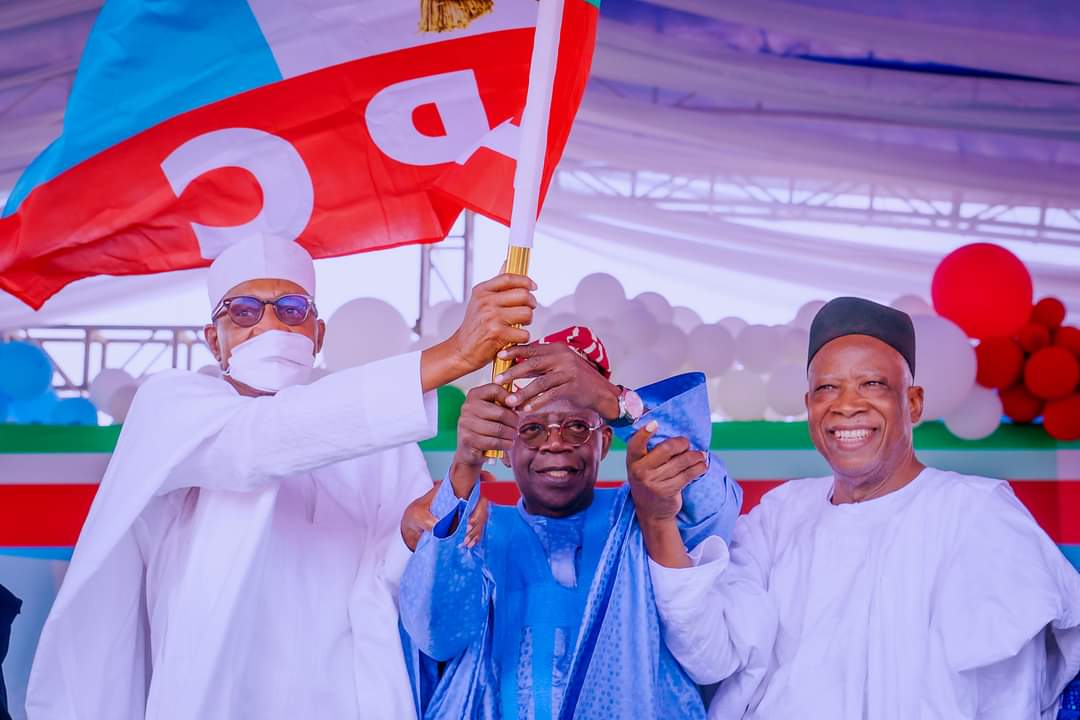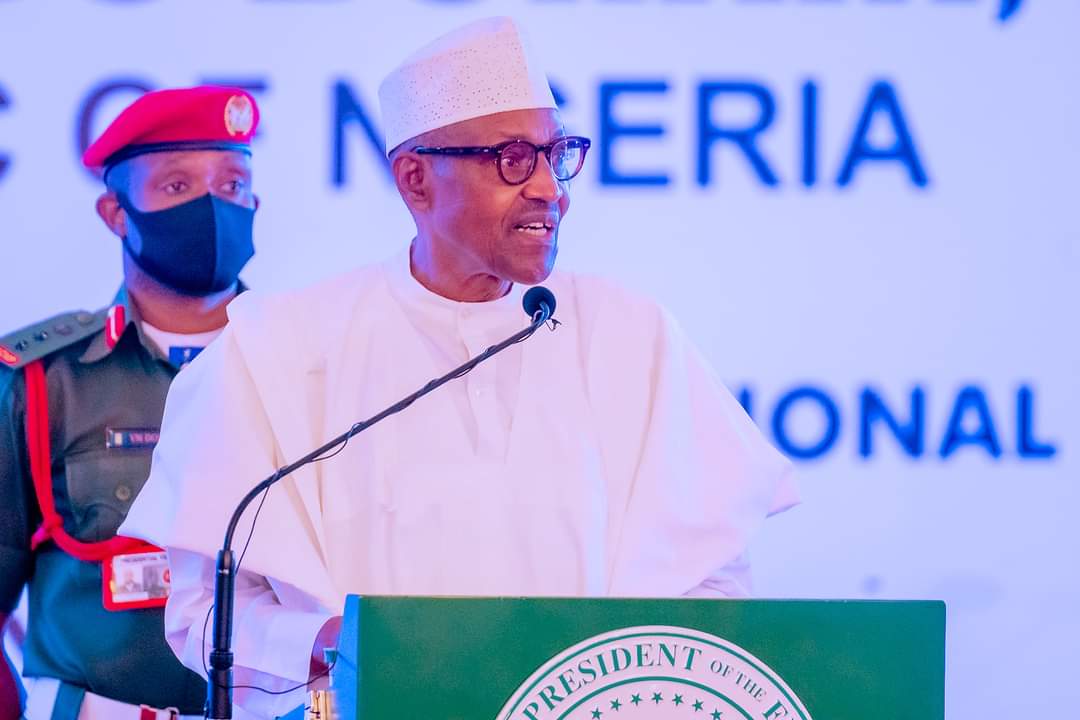Politics, as defined by the popular American political scientist, Harold Lasswell, is all about “who gets what, when, and how”. In the Nigerian political milieu, the definition of “who gets what, when and how?”, is based on certain considerations, among which are; ethnicity and religion. These happen to be the most conspicuous fault lines in our nationhood, at least, “today”, and maybe, “tomorrow”. Leaders across different facets of human endeavours in Nigeria, since the decade preceding the year of independence (1960), have always pretended that these fault lines never existed, even though it shapes, and colour their public utterances and conduct up to now, most of the time. Ethno-religious affinity, as a major consideration for who gets what, when, and how, at every level in Nigeria, has never been more pronounced than it is now. That is a sad reality we have had to contend with, in the last couple of decades.
As the race for the 2023 presidential election gathers momentum, the clamour for power to shift to the south of the Niger dominates public discourse and what attributes the person gunning to succeed President Muhammadu Buhari must, or should, possess. The argument is anchored around the fact that the incumbent, who is from the core north, will have spent eight years in office by May 29, 2023, and that does not support any move by any group to want to retain power in the north.
While Nigerians waited for the ruling All Progressives Congress (APC) to gather its acts together and conduct its primary election, it appeared the party wanted to follow in the footsteps of the opposition People’s Democratic Party (PDP) and throw the race open. Every Garuba, Olu, Emeka and Tamuno began to throw his hat into the ring. Not even the astronomical fee of ₦100 million for the expression of interest and nomination forms could deter them from joining the race. Among the strongest contenders were the vice president, Professor Yemi Osinbajo and his former boss and ex-governor of Lagos state, Asiwaju Bola Ahmed Tinubu. The intensity of the campaigns of these two estranged political godfather and godson, is akin to what to expect if the race were to be between, Joe Biden of America and Vladimir Putin of Russia.
The rivalry, manifesting in the throwing of brickbats on social media, has made the aspiration of others running in the party pale into insignificance. Not even the famed Yoruba political sagacity could get them to arrive at a consensus. So, the Yoruba would be going into the race with as many as six aspirants (Senator Ibikunle Amosun, Pastor Tunde Bakare, Rt. Hon. Dimeji Bankole, Yemi Osinbajo, Governor Kayode Fayemi and of course, Asiwaju Bola Ahmed Tinubu). But, on the evening of Saturday, May 4, 2022, a couple of events occurred, and that changed the whole narrative. One was the meeting of the 13 APC governors in the north, from which it was resolved that they will support power being ceded to the south. Two, President Buhari met with all the aspirants and affirmed the stance of the northern governors and then, it was understood that all the northern aspirants were to withdraw, leaving the ball in the courts of aspirants from the south. He reportedly asked them to go and consult; build a consensus or meet the party at the “Eagle Square” for a primary election on Tuesday, May 7.
Advertisement
This is no doubt an exemplary fair play from the northern APC governors. Patriotism is the only word I find most adequate, to describe the gesture, in my estimation. And nobody can question their commitment to “national unity” after this act of selflessness. Unconfirmed reports also have it that, the president told the party that the Action Congress of Nigeria (ACN) tendency within the party should produce the candidate. If this was accurate, then many aspirants like Emeka Nwajiuba, Rotimi Amaechi, Dave Umahi, Tunde Bakare, Ben Ayade, Rochas Okorocha, and Ken Nnamani, and others who are from the south, but were never members of the ACN, have been shut out of the race effectively. That leaves Tinubu, Osinbajo, Fayemi, and Amosu as the contenders among whom a consensus is a possibility, considering the history of their political relationships.
But, as the controversy raged, on Saturday, May 4, 2022, the northern governors on the platform of the ruling All Progressives Congress, (APC) after consultations among themselves (13 of them, excluding Governor Yahaya Bello of Kogi state who is also in the race for the presidency), agreed that power should shift to the south. That was a very magnanimous move from the governors, led by Simon Lalong of Plateau state. It no doubt calmed some frayed nerves among politicians and their supporters, and also doused the curiosity of those who are not politicians but with a healthy dose of political consciousness. By that, I don’t think that it would be improper to say that the northern governors have played the role of the “Big Brother”. According to Governor Lalong, they (the northern APC governors) arrived at the decision, having considered national unity, peace, and justice.
It would be recalled that a bipartisan Southern Governors’ Forum, comprising the 17 southern states’ governors under the chairmanship of Governor Rotimi Akeredolu of Ondo state, rose from a meeting on Sunday, July 5, 2021, in Lagos state where it declared and adopted in its communiqué that Nigeria’s next president should be from the southern part of the country, in the spirit of unwritten rotational arrangement that saw to it that, President Buhari clinched the party’s ticket in 2015, and he also emerged unopposed in 2019. The declaration was a follow-up to an earlier one, held in Asaba, the Delta state capital, on May 11, 2021.
Advertisement
There were, of course, counter-reactions from the governors in the northern region, at the time. These reactions fuelled the fear that the north might not be willing to relinquish power, come 2023, after which power would have resided in the north for eight uninterrupted years. The fear was not assuaged by the refusal of the major opposition party, the People’s Democratic Party (PDP) whose presidential ticket former Vice President Atiku Abubakar clinched, to zone its presidential ticket to the south, especially, the south-east – a region that has been giving over 80% of its votes in the presidential elections since 1999 to party. But that fear was assuaged by the press release, by Lalong.
APC, under the chairmanship of Senator Abdullahi Adamu, then, decided to confuse “confusion” itself, on Monday, June 6, 2022, by announcing that the current senate president, Ahmed Lawan, who is also from the north, was the consensus candidate. They made it sound like he is the mythical aspirant, said to have been anointed by President Buhari. Although the presidency was quick to debunk the insinuation through a press release, saying the president has anointed no one, the Lawan kite had sent shock waves across the political firmaments, especially the APC. Meanwhile, in the south-west, there is a fierce battle between the Vice President Yemi Osinbajo and the party’s national leader, Asiwaju Bola Ahmed Tinubu, that elders from the region were still trying to resolve by trying to let one see reasons to step down for the other, but to no avail. At that juncture, everybody, including “Confusion”, became confused by the APC. Hard as they tried, the elders from the south-west did not succeed in getting either Tinubu or Osinbajo to step down for the other. They had to go into the race on Tuesday night.
In addition to the south-west conundrum about who will resign for whom, among the six Yoruba aspirants in the party, there is also a geopolitical zone, the south-east geopolitical zone, that is yet to taste the presidency since 1970 when the civil war, the first major existential threat to the Nigerian state ended. And they have a strong moral ground to demand to be given a shot at it. But unfortunately, the people of the region have not been strategic enough in their realpolitik. They have not been very receptive to the APC as a party. The few prominent people, like Dr Chris Ngige, Joe Igbokwe, Rochas Okorocha, Hope Uzordinma, Ken Nnamani, and Governor Dave Umahi of Ebonyi state, among others, were called some derogatory names, like “Efulefus” – something that roughly translates to, “a fake Igbó persons”. Okorocha, for instance, is referred to as Okoro-Hausa, while Igbokwe is tagged “Yorubakwe”, because of his affinity with the Lagos political establishment in the APC. A look down the memory lane would reveal that the pattern is historical. The same treatment has been meted out to the likes of late Chief Melie Chikelu Kafundu Ajuluchukwu popularly known as, M. C. K. Ajuluchukwu, for his closeness to late Chief Obafemi Awolowo, during the second Republic. Former governor of Anambra state, Chief Chukwuemeka Ezeife was also once referred to as “the only Afenifere in Igbo land”, for his involvement in the National Democratic Coalition (NADECO) struggle for the actualization of the June 12 mandate of late MKO Abiola. NADECO used Lagos as the epicentre of its activities in its struggle for the demilitarization of the polity then.
It is a matter of historical fact that, whether in military or civilian dispensation, the highest office anyone from the region has ever attained since the civil war ended, has been the Vice President (late Dr Alex Ekwueme and Commodore Ebitu Ukiwe), under President Shehu Shagari and General Ibrahim Badamosi Babangida, respectively. Others are senate president (Evans Enwerem, Chuba Okadigbo, Adolphus Wabara, Ken Nnamani, and Anyim Pius Anyim. We also have Emeka Ihedioha who’d served as a deputy speaker and speaker of the house of representatives. That is all the region, peopled by the Igbo-speaking Nigerians, has gotten so far.
Advertisement
Now that the north (APC) has played the role of a “Big Brother”, by conceding the ticket to the south, which of the three geopolitical zones in the region takes it? Is it the south-east that has never produced a president, since 1970? If I were to answer the question, my answer would be a resounding “Yes, the south-east should take it”, for obvious reasons. As the APC zoned its ticket to the south, to secure it, the south-east needs an iron-fisted “autocratic democrat” like former President Olusegun Obasanjo, to do a “Yar’Adua over an Odili”. Unfortunately, however, such a personality does not exist in the party at the moment. So, it would be easier for a “camel to pass through the eye of the needle”, than for an APC presidential ticket to go to the south-east without an “Obasanjo” in the party, who is favourably disposed towards the idea.
The real lesson for the region is that they need to get their politics right, not keep their eggs in one basket. They have invested everything they have, politically, in the PDP that they act as if other parties do not exist. The region’s loyalty to the PDP was so strong that the symbol of the Igbo sociopolitical emancipation struggle, late Chief Chukwuemeka Odumegwu Ojukwu formed a party, the “All Progressives Grand Alliance”, APGA and contested for the presidency in 2003, but he could not win any of the five states in the region. A foremost journalist, Fredrick Nwabufor in his article, published July 30, 2021, did a breakdown of the votes, in the region, thus:
“In Anambra, Obasanjo had 466,866 votes which represent 54 percent of the entire count while Ojukwu had 279,378 – 34 percent of the total tally. In Abia, Obasanjo had 386,748 votes (51.7 percent) while Ojukwu had 260,899 votes (34.9 percent). In Ebonyi, Obasanjo had 752,823 votes (94.5 percent) but Ojukwu polled only 20,525 votes (02.6 percent) within the same range as Muhammadu Buhari who had 16,308 votes in the State. In Enugu, Obasanjo had 897,721 votes (79.7 percent) while Ojukwu had 177,050 votes (15.7 percent). And in Imo, Obasanjo polled 656,861 votes (64.6 percent), but Ojukwu had 281,114 votes (27.7 percent). The late Igbo leader’s second attempt in 2007 was also unsuccessful”.
But, in the race for 2023, what did the region get in return? Nothing. The race was thrown open, and one of the aspirants of Igbo extraction, Anyim Pius Anyim, out of over one hundred delegates from the region, was able to garner, no more than 14 votes. Some people would argue that PDP used and dumped the south-east. Looking at the above statistics one cannot but agree with that school of thought. PDP treated the region like that because, it sees her as negotiating from a position of weakness, as they have very little stake in the ruling All Progressives Congress.
Advertisement
But from the drama playing out at the Eagle Square Abuja, the venue of the APC convention, the probability that the ticket would go to the south-west. The contest has been reduced to a two-horse race, between Asiwaju Bola Ahmed Tinubu and Professor Yemi Osinbajo, as many of the aspirants, Godswill Akpabio, Senator Ibikunle Amosun, Governors Abubakar Badaru of Jigawa state, and Kayode Fayemi of Ekiti state, Dimeji Bankole, Ajayi Borofice and the only woman in the race, Barrister Uju Ken-Ohanenye, all stepped for Asiwaju. The other person who stepped down Nicholas Felix did for Osinbajo. That effectively leaves the race between Osinbajo and Tinubu, as the likes of Tunde Bakare, tantrum-throwing Governor Yahaya Bello of Kogi State, Ogbonnaya Onuh, Governor Dave Umahi of Ebonyi state and Emeka Nwajiuba who did not even show up at all, stand no chance.
I do not have the luxury of knowing who the APC candidate will be, as the result of the primary election is still being sorted at the time of putting this piece together. But, whoever emerges will have Alhaji Atiku Abubakar to contend with at the general election in 2023. But we must not forget the heroes of the day – the 13 northern governors who agreed to back southern candidates in the spirit of national unity, fairness, justice, and equity. For zoning the presidential ticket to the south when it was not the most attractive option; when it was most dangerous to do so, considering the formidability of Atiku, they deserve national honours.
Advertisement
Abubakar writes from Ilorin. He can be reached via 08051388285 or marxbayour@gmail.com
Advertisement
Views expressed by contributors are strictly personal and not of TheCable.
Add a comment

